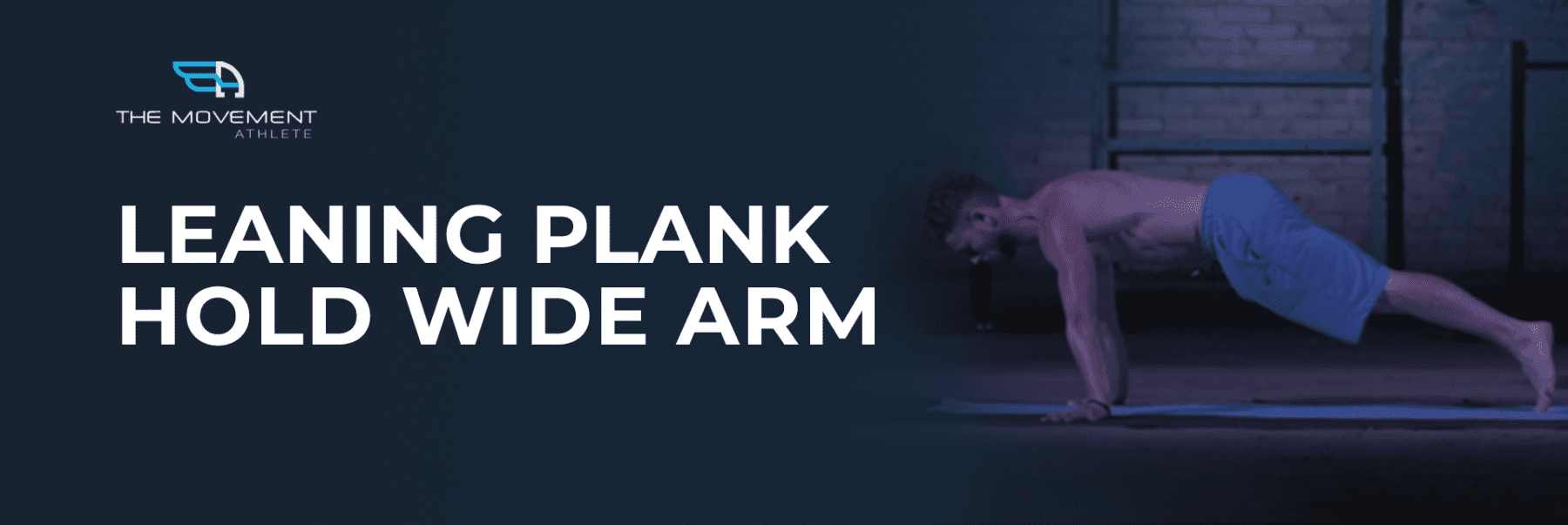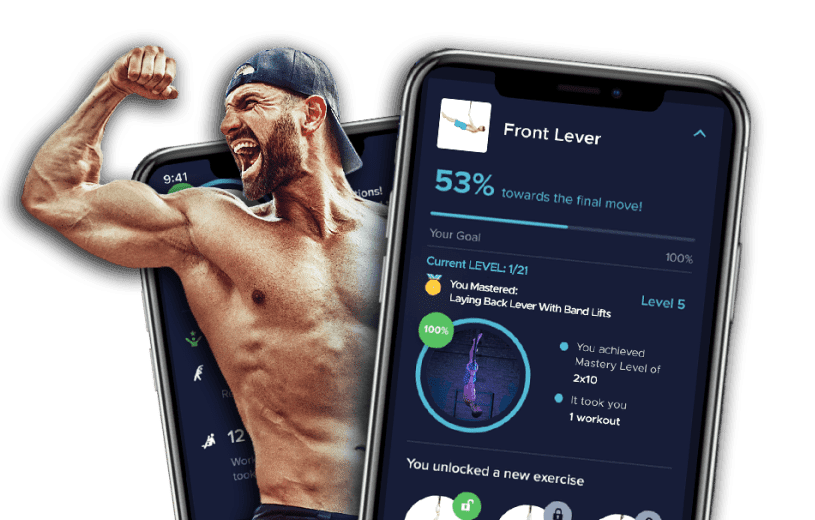

Leaning Plank Hold Wide Arm: Master the Essential Planche Foundation
📖 Read Time: 8 Minutes | 🎯 Difficulty: Beginner to Advanced | ✅ Progressive Foundation Exercise
Want to master advanced skills like the planche and maltese? It all starts with this one fundamental exercise. The leaning plank hold wide arm builds the exact strength, stability, and body awareness you need for elite calisthenics movements.
✅ The best part? This exercise scales perfectly from absolute beginner to elite athlete – you’ll never outgrow it!
Getting a very solid foundation of the basic form is key to progressing to advanced skills. One important factor for mastering skills like planche variations is developing a strong bodyline – which our exercise for today can teach you perfectly.
💡 What You’ll Master Today:
- ✅ Perfect Form Technique: Step-by-step execution for maximum effectiveness
- ✅ Progressive Lean System: How to measure and advance your forward lean objectively
- ✅ Targeted Muscle Development: Pectorals, triceps, deltoids, forearms, and lats
- ✅ Joint Preparation Protocol: Safely condition wrists for demanding planche work
- ✅ Coaching Cues: Professional form points for perfect execution
🏆 Join the Tribe of Movement & Calisthenics Athletes
People just like you working with bodyweight training to get strength, lose fat, build muscle, recover from injuries and live their best lives!
💪 “This exercise was my gateway to mastering the planche!” – Sarah, 29
🎯 Exercise Overview: Why This Movement Matters
The leaning plank hold wide arm is a skill-specific exercise and an integral step toward mastery of the Planche Fundamental. This movement targets the exact muscle groups and movement patterns needed for advanced calisthenics skills.
✅ Key Benefits
- 🏋️ Strengthen upper body muscles (pectorals, triceps, deltoids)
- 💪 Increases wrist strength and mobility safely and progressively
- 🎯 Solidifies core stability in challenging positions
- 🤸 Teaches proper planche technique and body positioning
This is also a great exercise to prepare your joints for the very demanding planche work. The skill is incredibly scalable – beginners and even advanced athletes can use this movement to increase their strength and skills. Simply lean as much as you can handle for the perfect challenge.
🎯 Want exercises perfectly matched to YOUR current level? Get your personalized program →
👍 How to Know When It’s Safe to Attempt
If you already have regular planche leans or even just a strong push-up position hold, you’re safe to try this exercise. The key is easing yourself into the movement progressively.
🔒 Prerequisites
- ✅ Comfortable in standard push-up position for 30+ seconds
- ✅ Basic plank hold for 60+ seconds
- ✅ No wrist pain or limitations
- ✅ Basic understanding of hollow body position
💪 How to Perform: Step-by-Step Guide
🎯 Execution Steps
- Setup: Place palms wide on the floor (wider than shoulder-width), extend legs back and straighten body
- Position: Come up on toes in push-up position, shift weight forward over palms
- Hold: Keep body tight and straight, hold position for specified time
- Breathe: Maintain controlled breathing throughout the hold
- Exit: Slowly shift weight back to neutral position
🏆 Professional Coaching Cues
| Position Phase | Key Form Cues | Common Mistakes |
|---|---|---|
| 🏁 Starting Position | • Planted toes • Wide arms (more than shoulder-width) • Fingertips pointing outwards • Shoulders over hands |
• Too narrow grip • Shoulders too far back • Bent arms |
| ⚡ Movement Position | • Shoulders in front of hands • Scapula protraction • Maintain straight body line • Controlled breathing |
• Dropping hips • Lifting hips too high • Losing shoulder position |
| 🏁 Finish Position | • Controlled return to start • Maintain tension throughout • No collapse or drop |
• Sudden weight shift • Losing control • Breaking body line |
🔑 Universal Form Points (All Positions)
✓ Straight legs – No knee bend throughout
✓ Tight core – Hollow body engagement
✓ Flat hips – No sagging or piking
✓ Locked straight arms – No elbow bend
✓ Shoulder depression – Away from ears
✓ Lengthened spine – No rounding
💡 Want real-time form feedback? Our AI coach analyzes your movement and provides instant corrections. Try it FREE →
👉 Critical Success Tips
⚠️ Don’t Break Form
Holding the starting position might feel easy, but when you start leaning forward, everything changes. You’ll feel intense load on your wrists, biceps, chest, lats, and deltoids.
💡 Rule: Lean only as far as you can maintain perfect form. Once form breaks down, lean back immediately.
📏 Objective Lean Measurement
It’s difficult to progress if you don’t know exactly where you are with your lean. You can’t measure wrist angle, but you CAN measure distance traveled.
🎯 Method 1: Wall Touch Method
- Position yourself in front of a wall
- Lean forward until your forehead lightly touches the wall
- Measure the distance from wall to your hands
- This becomes your progress benchmark
🎯 Method 2: Foot Distance Method
- Face away from wall, feet touching the wall
- Lean forward into position
- Have someone measure distance between wall and feet
- Track this measurement over time
📈 Now you can objectively track your lean progression!
📈 Progression Guidelines
| Level | Hold Time | Lean Distance | Sets x Reps |
|---|---|---|---|
| Beginner | 10-20 seconds | Slight lean (comfortable) | 3 x 3-5 holds |
| Intermediate | 30-45 seconds | Moderate lean (challenging) | 3-4 x 5-8 holds |
| Advanced | 60+ seconds | Maximum lean (perfect form) | 4-5 x 8-10 holds |
💡 Pro Tip: This exercise can challenge you for YEARS. Elite athletes still use maximum lean holds to maintain and build strength. You’ll never outgrow it!
🚀 Ready to progress systematically toward advanced skills? Get your progressive roadmap →
🎯 Key Takeaways
The leaning plank hold wide arm is your gateway to advanced calisthenics mastery. This foundational exercise builds the exact strength patterns, joint conditioning, and body awareness needed for elite skills like the planche and maltese.
Remember These Essentials:
- ✅ Form is everything – lean only as far as you can maintain perfect position
- ✅ Use objective measurement methods to track progress
- ✅ Wide arm position targets the right muscle groups
- ✅ Progressive loading protects joints while building strength
- ✅ This exercise scales from beginner to elite level
🔥 What You Really Need: A Systematic Approach
While this exercise is incredibly effective, the truth is: random training won’t get you to advanced skills. You need a systematic approach that progresses logically from where you are now to where you want to be.
That’s exactly what The Movement Athlete provides – a complete roadmap from basic movements to elite skills, with AI-powered progression that adapts to your daily performance.
🏆 Why Our Members Progress Faster:
- ✅ Smart Assessment: Knows exactly where to place you in the progression
- ✅ Daily Adaptation: Adjusts difficulty based on your actual performance
- ✅ Perfect Sequencing: Each exercise builds on the previous one
- ✅ Form Feedback: Video library ensures you’re doing it right
- ✅ Elite Skills Path: Clear roadmap to planche, front lever, and beyond
“I started with this basic lean and thought I was strong. The progressive program showed me exactly what I was missing. 8 months later, I achieved my first tuck planche!”
— Marcus T., 35, Father of Two
📚 Build Your Foundation Further
🎓 Planche Fundamentals
Master the complete planche progression from lean to full planche.
🤸 Wrist Conditioning
Essential exercises to bulletproof your wrists for advanced training.
✅ Hollow Body Mastery
Build the core stability foundation for all advanced movements.

🔥 Limited Time: Free Custom Training Plan ($297 Value)
Get a FREE Customized Training Plan!
Start Your Life-Changing Journey with Calisthenics
⭐⭐⭐⭐⭐ Join 100,000+ athletes getting lean, strong and mobile
✅ Complete fitness assessment in 5 minutes
✅ Custom training plan for your exact level
✅ Progressive path to 100+ gymnastics & calisthenics skills
✅ Train anywhere with zero equipment required
🎆 Total Value: $735 – Get Started FREE Today
It only takes 5 minutes, and no credit card is required!

About The Movement Athlete Team
Our team of certified calisthenics coaches has helped over 100,000 athletes master bodyweight training. From beginners taking their first steps to advanced athletes achieving elite skills, we’ve developed the most comprehensive progressive training system available.
Specialties: Progressive Calisthenics, Planche Training, Movement Assessment, Strength Development